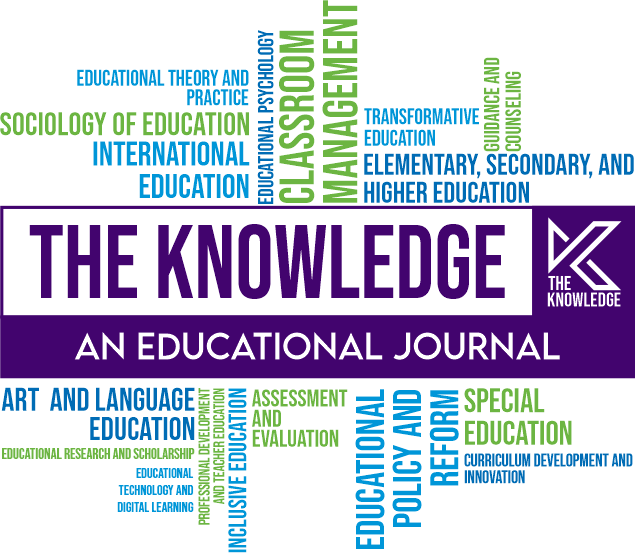The Impact of Parental Socioeconomic Status on Social Behavior of Students
DOI:
https://doi.org/10.63062/tk/2k22a.15010Keywords:
Parental Socioeconomic Status, Higher Secondary Level, Social Behavior, EducationAbstract
This study investigates the intricate relationship between parental socioeconomic status (SES) and the social behaviour of students at the higher secondary level. Drawing upon a comprehensive review of literature, theoretical frameworks, and empirical evidence, this research aims to elucidate the multifaceted ways in which parental SES influences various aspects of students' social behaviour during their higher secondary education years. Through a descriptive approach, questionnaire data were collected from a diverse sample of higher secondary students from different socioeconomic backgrounds. The study explores the nature of the influence of parental SES on students' peer relationships, interpersonal skills, participation in extracurricular activities, and overall social integration within the school environment. Additionally, mediating factors such as parental involvement, family dynamics, access to resources, and community support will be examined to better understand the mechanisms through which SES impacts students' social behaviour. Furthermore, the research investigated the long-term implications of socioeconomic disparities in social behaviour, both academically and in terms of students' overall well-being and future opportunities. The findings of this study are expected to contribute to a deeper understanding of the complex interplay between parental SES and students' social behaviour at the higher secondary level, with implications for educational practice, policy, and interventions aimed at promoting equity and inclusivity in higher secondary education settings.
References
Adler, N. E., & Ostrove, J. M. (1999). Socioeconomic status and health: What we know and what we don't. Annals of the New York Academy of Sciences, 896(1), 3-15. https://doi.org/10.1111/j.1749-6632.1999.tb08101.x
Bandura, A. (1977). Social Learning Theory. Englewood Cliffs, NJ: Prentice Hall.
Bandura, A. (1986). Social Foundations of Thought and Action: A Social Cognitive Theory. Prentice-Hall, Inc.
Benabou, R., & Ok, E. A. (2001). Social Mobility and the Demand for Redistribution: The Poum Hypothesis. The Quarterly Journal of Economics, 116(2), 447–487. https://doi.org/10.1162/00335530151144078
Bradley, R. H., & Corwyn, R. F. (2002). Socioeconomic status and child development. Annual Review of Psychology, 53(1), 371-399. https://doi.org/10.1146/annurev.psych.53.100901.135233
Bronfenbrenner, U. (1979). The Ecology of Human Development: Experiments by Nature and Design. Harvard University Press.
Bronfenbrenner, U., & Morris, P. A. (2006). The bioecological model of human development. Handbook of Child Psychology.
Coleman, J. S. (1988). Social capital in the creation of human capital. American Journal of Sociology, 94, S95-S120. https://doi.org/10.1086/228943
Conger, R. D., & Donnellan, M. B. (2007). An interactionist perspective on the socioeconomic context of human development. Annual Review of Psychology, 58(1), 175-199. https://doi.org/10.1146/annurev.psych.58.110405.085551
Evans, G. W., & Kim, P. (2013). Childhood poverty, chronic stress, self‐regulation, and coping. Child Development Perspectives, 7(1), 43-48. https://doi.org/10.1111/cdep.12013
Putnam, R. D. (2000). Bowling Alone: The Collapse and Revival of American Community. Simon and Schuster.
Reardon, S. F. (2011). The widening academic achievement gap between the rich and the poor: New evidence and possible explanations. In R. Murnane & G. Duncan (Eds.), Whither Opportunity? Rising Inequality, Schools, and Children's Life Chances (pp. 91-116). Russell Sage Foundation.
Reiss, F. (2013). Socioeconomic inequalities and mental health problems in children and adolescents: A systematic review. Social Science & Medicine, 90, 24-31. https://doi.org/10.1016/j.socscimed.2013.04.026
Sirin, S. R. (2005). Socioeconomic status and academic achievement: A meta-analytic review of research. Review of Educational Research, 75(3), 417-453. https://doi.org/10.3102/00346543075003417
Published
Issue
Section
License
Copyright (c) 2025 Copyright in the THE KNOWLEDGE is retained by the author(s). Authors also grant any third party the right to use the article freely as long as its integrity is maintained and its original authors, citation details and publisher are identified.
This work is licensed under a Creative Commons Attribution-NonCommercial 4.0 International License.







